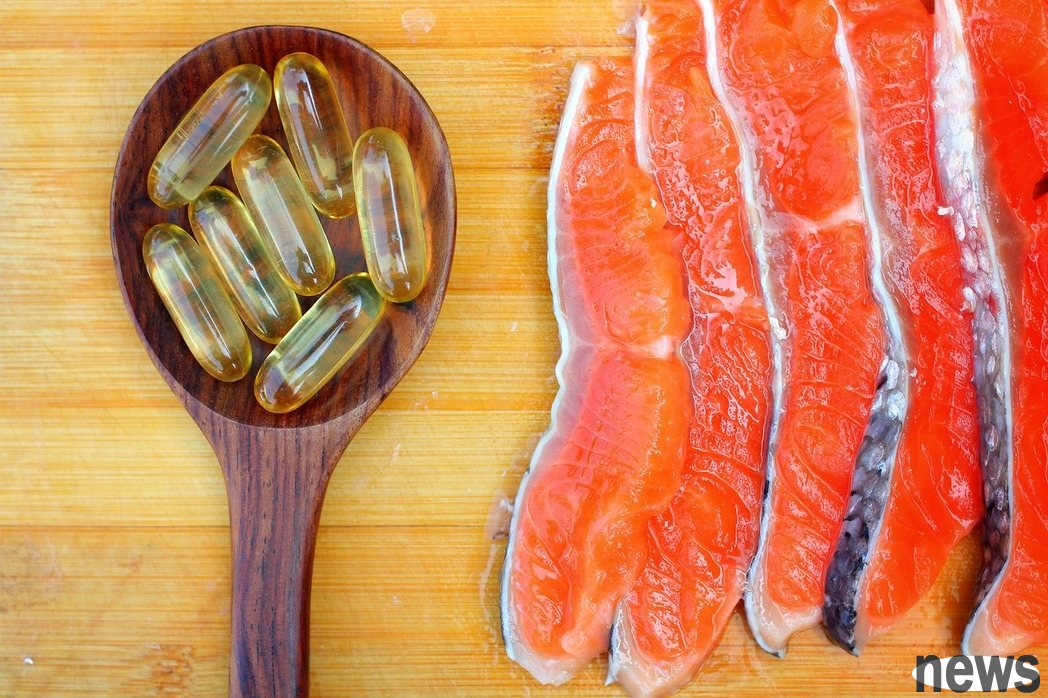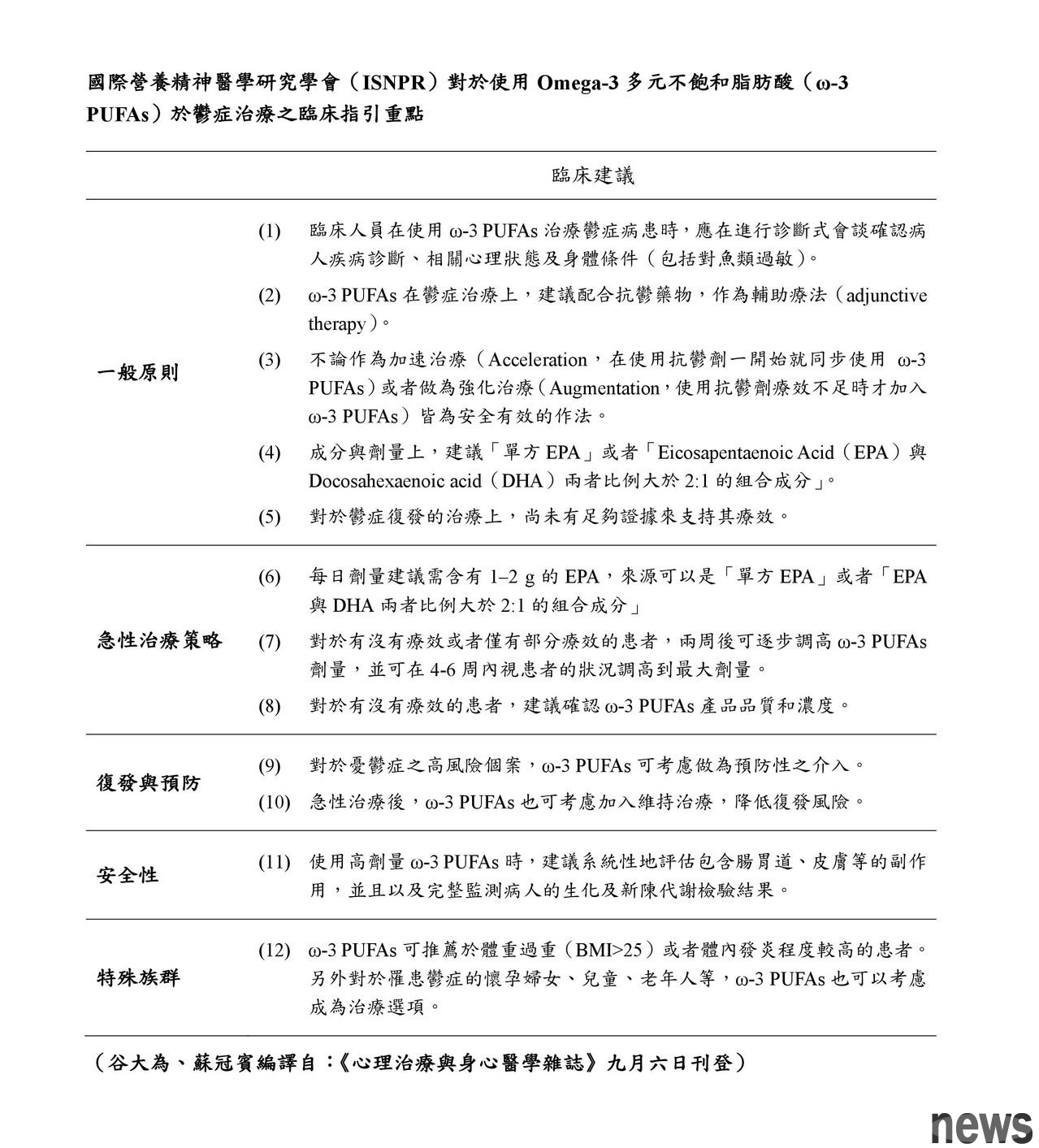
Previous research from the China Medical University Institute of Physical and Mind Interface Research found that deep-sea fish oil is an effective and safe new method for treating depression. In order to allow doctors and patients to accurately grasp the dose, they convened experts from the International Nutritional Psychiatric Medical Research Association (ISNPR) and other experts to jointly prepare the "Clinical Guidelines for the Treatment of Depression by Omega-3 Fatty Acids" to provide clinical physician references, and also give patients with depression an additional treatment choice.
Should I eat more fish or fish oil health foods rich in Omega-3 fatty acids on weekdays? The scientists said that deep-sea fish is rich in Omega-3 fatty acids, but it may accumulate more multi-metal and environmental hormones, which will be difficult to evaluate the benefits and harms. Commercially available fish oil health foods are widely and are often found to contain complex or unknown standards because of their loose relevant regulations; it is recommended that people in need consult experts.
{Gu Da, the head of the teaching group of the Teaching and Research Department of Beigang Affiliated Hospital of the Beigang University of Medicine and the attending physician of the Physical and Mind Department, said that the Omega-3 fatty acid commonly known as deep-sea fish oil is necessary for the human body. Once it is lacking, it may affect the normal operation of the brain nervous system, heart, and kidneys. The concentration of Omega-3 fatty acids in patients with depression is often insufficient. First, the expression of some genes will accelerate their reproduction. Another important reason is that modern diets are highly refined, which can easily cause the proportion of Omega-3 fatty acids and Omega-6 fatty acids in the body to imbalance.

Gu Dawei said that over the past three decades, supplementing Omega-3 fatty acids has helped patients with depression improve their symptoms, but clinical doctors and patients around the world lack clear guidance to grasp the dose.
In this regard, Su Guanbin, host of the Physical and Mind Interface Research Center of China Medical University, gathered a total of 15 students from seven countries including Harvard University in the United States, the Royal College of the United Kingdom, the National Cancer Research Center in Japan, and the Meerben University in Australia to jointly analyze domestic and foreign languages, and formulated the "Clinical Guidelines for the Treatment of Omega-3 Fatty Acids in the Treatment of Depression", which includes applicable targets, dosage and proportion, treatment time length, side effect monitoring, etc. Related articles have been published in the international medical journal "Psychotherapy and Psychosomatics", and have been listed as the main editorial and selected articles.
Omega-3 fatty acids contain EPA and DHA. The above guidelines suggest that patients with severe symptoms can be given 1-2 grams of EPA per day, or 1-2 grams of EPA and DHA per day, the latter ratio should be greater than 2:1; prescriptions can also be given to pregnant women, the elderly, children and obese patients.
Gu Da believes that deep-sea fish is rich in Omega-3 fatty acids, but the commercially available fish oil health foods are widely and often contain complex or unknown standards. It is recommended that the government should also clearly specify the relevant regulations to strictly control the health of the people. "In daily diet, it is advisable to reduce the consumption of refined foods and eat more prototype foods to avoid the imbalance in the proportion of Omega-3 fatty acids and Omega-6 fatty acids in the body."
{twenty one} {twenty two}
● Download the full study text: https: //www.karger.com/Article/FullText/502652